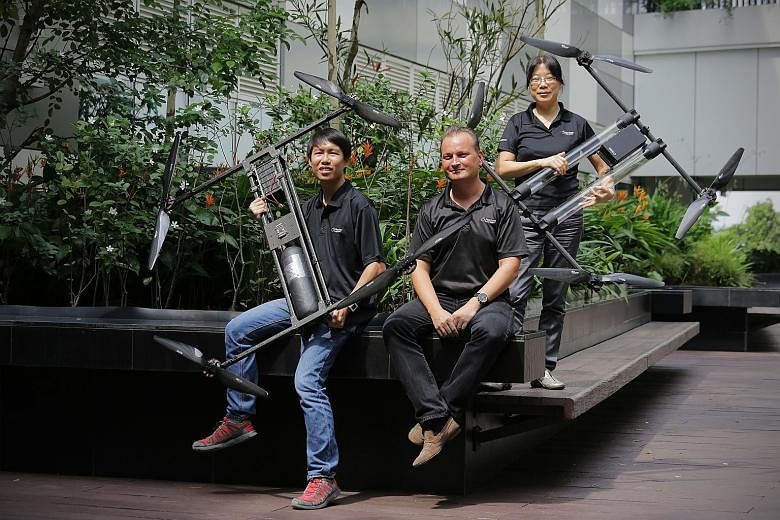Local cleantech firm Horizon Energy Systems is trying for a new world record with a new fuel cell that can fly an unmanned aerial vehicle, often called a drone, for 300km without stopping or refuelling.
The flight from Scotland to Norway over the North Sea will use a Singapore-developed fuel cell that is light and can last for 12 hours.
It is expected to take place in the next few months. The company set the current record of 128km in 2007 .
The flight is a collaboration between Horizon and Scottish drone developer RaptorUAS.
Together, they are working with Northern Colorado Search and Rescue, based in the United States, to test this long-endurance drone system.
Horizon chief executive Taras Wankewycz said the long-lasting fuel cell makes the drone an ideal support tool in difficult search and rescue operations over large areas of sea or land.
The firm is focused on building small fuel cells producing 1 kilowatt (kw) to 5kw of power that can be used in small drones that weigh about 5kg.
Horizon is a world leader in energy storage systems for electrical drones. It has worked with many of the world's aerospace companies, including the National Aeronautics and Space Administration (Nasa).
In 2007, it set the world record when it powered the Nasa-backed 5kg Pterosoar unmanned aerial vehicle system which flew 128km, the longest distance for drones then.
Mr Wankewycz said: "There's a lot of interest in drones because it is a market that is only emerging. It helps that big companies like e-commerce giant Amazon is building drones for delivery, which further fuels this market."
Horizon sees an opportunity in this market. Its strategy is to build drone systems that integrate with its fuel cells and its software.
The drones will be able to communicate with ground sensor systems to collect data which can be crunched with its analytical tools to provide real-time insights.
Horizon sees its drones being used for security or productivity activities.
Organisations may want to use drones for security reasons, such as patrolling an industrial complex or nuclear facility. Or they can be used for the inspection of oil pipelines and borders in remote areas.
"For oil companies that have long pipelines, for example, they would want to inspect them to ensure that they have not been tampered with. Previously, they would have to send teams of people out to do this."
Commercial companies may want to use drones to inspect the quality of installations in construction plants, for example.
The drones can be programmed to fly at specific intervals to collect data which is then sent wirelessly back to the office.
Drones can also be fitted with cameras for use in homeland security. They can be used to patrol remote areas or for crowd control.
"Because they can stay up longer, they provide better surveillance. We're also developing... a buddy system - as one drone returns to base station, another takes off to resume patrolling or surveillance."
Grace Chng

